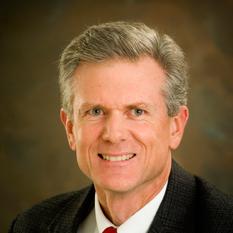Computer Model Leads to a FDA-Approved Clinical Trial in Children

Congenital heart defects are among the most common of all birth defects. In severe cases, children require surgery, often including implantation of a synthetic graft to connect two key blood vessels – the inferior vena cava and the pulmonary artery, thus allowing blood to flow to the lungs and become oxygenated. Recent development of a tissue-engineered vascular graft (TEVG) promised to improve outcomes by enabling a graft with growth capacity, but early evidence of TEVG stenosis brought the clinical trial to a pre-mature end.
 A computer model developed in the laboratory of Jay Humphrey, John C. Malone Professor and Chair of Biomedical Engineering, however, suggested otherwise. Their work, in collaboration with surgeon-scientists at Nationwide Children’s Hospital at Columbus, OH was recently published in Science Translational Medicine, and featured on the journal's cover.
A computer model developed in the laboratory of Jay Humphrey, John C. Malone Professor and Chair of Biomedical Engineering, however, suggested otherwise. Their work, in collaboration with surgeon-scientists at Nationwide Children’s Hospital at Columbus, OH was recently published in Science Translational Medicine, and featured on the journal's cover.
The computer model simulates the natural process of the degradation of a surgically implanted polymeric scaffold within the body and the simultaneous infiltration of host cells into the scaffold. The model then predicts how these cells begin to form a near native extracellular matrix, driven by both an inflammatory response to the foreign polymeric implant and stresses developed due to blood pressure and flow. Computer model predictions by Jason Szafron, Ph.D. student in biomedical engineering, suggested that the TEVG should indeed narrow over a short period, but then spontaneously widen. This unexpected hypothesis was then tested in a 1.5-year pre-clinical large animal model and, as predicted, the TEVG narrowing reversed spontaneously.

Based on these encouraging results, the FDA-approved clinical trial is now scheduled to resume at Columbus, where the pre-clinical study and the clinical trial were performed.
“Computer models of biological processes continue to improve and now are used by many in designing medical devices, identifying drug delivery protocols, and even surgical planning," Humphrey said. "We were fortunate to be asked to collaborate with the excellent team of Dr. Christopher Breuer at Nationwide Children’s Hospital and were delighted that our model predictions helped to enable this promising clinical trial to continue.”

